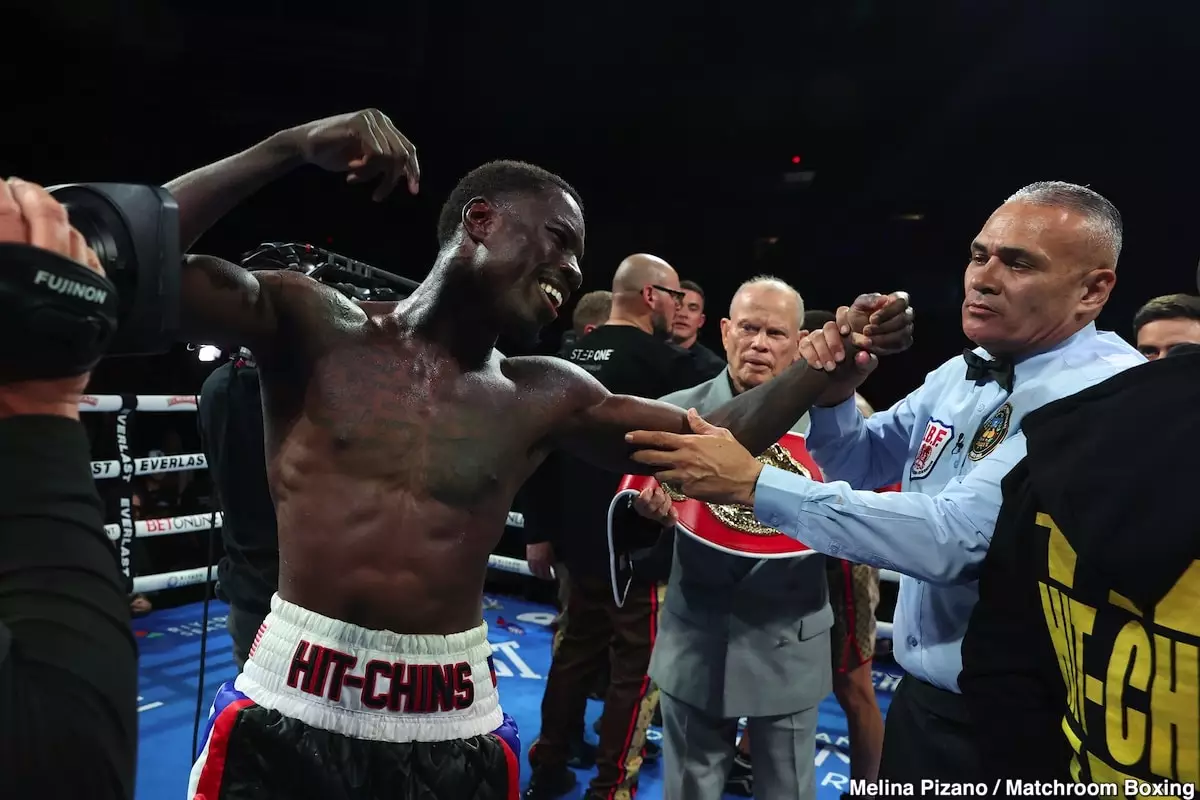Richardson Hitchins recently emerged victorious, laying claim to the IBF light welterweight title after a hard-fought battle against Liam Paro at the Coliseo Roberto Clemente in San Juan, Puerto Rico. With a record now standing at 19 wins, 0 losses, and 7 KOs, Hitchins has stamped his mark in the boxing world. However, while Eddie Hearn, his promoter, believes that this title win should facilitate matchups with elite fighters, the reality of the boxing landscape suggests a different narrative.
A Tactical Masterclass
The bout against Paro showcased Hitchins’ adaptability and skill. The fight illustrated a slow-paced start where he needed several rounds to decode Paro’s unique style. That initial struggle gave way to a tactical mastery that saw Hitchins systematically outmaneuvering Paro, especially in the latter half of the match. Hitchins employed an effective counterpunching strategy, and as he began to find rhythm, he made Paro hesitant to engage, receiving accolades for his speed and precision.
What should have been a unanimous victory turned into a contentious split decision, with judges scoring it 117-111 for Paro while the other scores were 116-112 in favor of Hitchins. The discrepancy triggered a wave of criticism, suggesting a biased or misinformed view from the judges. Yet, as the fight unfolded, it became increasingly apparent that the judges misjudged Hitchins’ performance, highlighting a significant gap in understanding technical boxing. This raises questions about the need for more uniform judging criteria in professional boxing; something that has long plagued the sport.
The Road Ahead for Hitchins
Despite attaining the IBF title, which typically enhances a boxer’s negotiating power, Eddie Hearn recognized inherent challenges in securing fights against high-profile competitors. Names like Ryan Garcia, Devin Haney, and Teofimo Lopez were floated as potential opponents for Hitchins; however, such aspirations collided with the reality that the contemporary boxing landscape is fraught with fighters’ reluctance to face styles that may not favor them.
Hitchins himself articulated the challenges and his understanding of the strategic maneuvering necessary to carve out his path. He expressed his surprise at Paro’s craftiness, acknowledging the opponent’s skillset. This humbleness, coupled with an innate respect for the sport, sets him apart in a world often molded by bravado and trash-talk. Hearn’s claims about the title being a magnet for significant fights for Hitchins might carry more idealism than reality; even with a championship belt, fighters find ways to dodge potentially dangerous challengers.
Hearn hinted that the championship title would likely transform Hitchins from the hunter to the hunted. The irony, however, rests in boxing’s reduced willingness to anticipate or embrace risk. Teofimo Lopez’s comments of potentially seeking a fight with Hitchins appear more aligned with keeping his name relevant than genuine interest. Having lost luster since his defeat against George Kambosos Jr., Lopez may well be attempting to leverage the fight to rejuvenate his standing rather than facing a serious threat.
On the flip side, the involvement of Turki Alalshikh poses a new factor. Hearn’s past successes in facilitating matchups may have been aided by this association, suggesting that financial backing can often extract competitors from hiding. As promoters increasingly seek lucrative bouts, a title can prompt discussions; however, true willingness from rivals often eludes certainty, especially when faced with the prospect of a difficult fight.
A championship title is a double-edged sword. While it undoubtedly provides legitimacy and opens doors, it can simultaneously push potential opponents further away, creating a disconcerting paradox. For Richardson Hitchins, the journey to securing high-profile matchups is jam-packed with uncertainties. The accolades and belt may attract interest, but they also make him a target of avoidance—a predicament many emerging champions encounter.
As the boxing community watches closely, Hitchins must navigate these complexities armed not only with skill but also strategic acumen to overcome the various obstacles that hinder him. Only time will reveal if he can command the attention of those elite names, but it will require a mix of perseverance and calculated negotiation to carve out a clearly defined role in the sport’s hierarchy.
Richardson Hitchins has taken a significant step forward in his career, but the road to becoming a genuine boxing star will not be as straightforward as simply holding a title. It is a profound reflection of both the struggles faced by young champions today and the intricate, often frustrating, dynamics of professional boxing.

